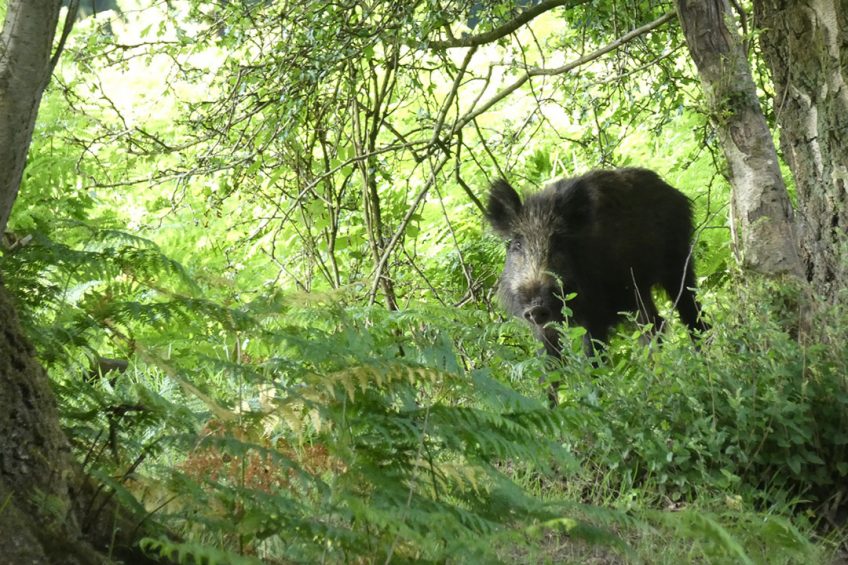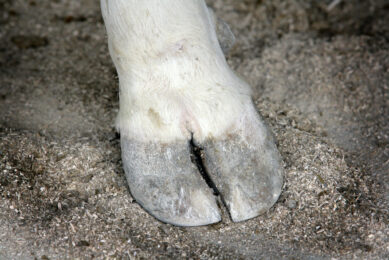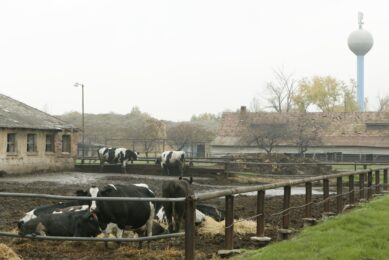ASF Germany: New phase in battle starts; count at 150

As the total count of infected wild boar in Germany has topped 150, Germany’s minister of agriculture Julia Klöckner has stated the country has entered a new phase in fighting ASF in the country’s wild boar population.
As from next week, Julia Klöckner, the German minister of agriculture, has allowed to shoot wild boar in a 5km wide zone around the 1st of 4 contaminated zones in Germany, comprising areas of the Oder-Spree and Spree-Neisse districts. A so-called ‘white zone’ corridor has been equipped with fences on the inside and the outside. When shooting all wild boar there, the aim is to create a wild boar free zone, so the virus cannot spread through migration of contaminated wild boar.
The intention is to eventually create white zones around all infection zones in Brandenburg. This approach is being advised by specialists of the EU Veterinary Emergency Team (EUVet) – it has been a proven successful method.
Search for wild boar carcasses
Simultaneous with the instalment of the white zone, the search for wild boar carcasses continues inside the core zones. Those have been found in 4 different German districts. At the moment, the count is at 150. The vast majority of these were found in Brandenburg state (149) and one was shot in Saxony state.
The German pig producers union (ISN) has responded to be happy with the initiative, and has called on the Brandenburg authorities to apply the measure “consistently and without compromises”.
More cooperation with Czech Republic and Poland
Klöckner also stated that in the battle against ASF there will be an increased cooperation with the Czech Republic and Poland. She said so during a video conference with her peers Grzegorz Puda (Poland) and Miroslav Toman (Czech Republic). The idea is to not only coordinate initiatives at ministerial levels, but also at the level of veterinary authorities.
The German authorities are in talks with Japan, South Korea and China as well, to get a regionalisation policy accepted politically and technically. That would mean that Germany would be able to export from non-infected constituent states. Currently the ASF situation in Germany has been aggravating an already difficult situation, related to Covid-19, with an abundance of finisher pigs waiting for their turn in the slaughterhouse, leading to pressure on prices.
Permanent ASF fence in Saxony state
In the meantime, Poland continues to report new ASF cases, also along the border with Germany. One case was discovered virtually on the border with the German state Saxony this week, just south of the case that was shot near the German border town Krauschwitz, Görlitz district, late October.
The case Saxony therefore announced to replace its current temporary fence with a permanent fence, Germany’s swine titleSUS reported. In the north it will join the fence that is being created by Brandenburg state; in the south it will reach until Motorway 4, just north of Görlitz.
In addition, the local authorities decided not to proceed to create an “inner infection zone” in Saxony. Gemany’s agricultural titleTop Agrar reported that it is believed that the animal simply had walked in from Poland. The authorities stated that a core zone would only make sense in case there would be an active presence of the disease.

Track the movement of African Swine Fever
For everything you need to know about ASF, from the latest outbreaks to controls stay up to-date…
Own search dogs during wild boar surveillance
Brandenburg state also announced that it is now making use of 7 own carcass search dogs. In a press release, the leader of the Brandenburg ASF crisis staff, Anna Heyer-Stuffer, said, “At the carcass over the last few weeks, we received valuable and efficient support of trained dogs from other constituent states in Germany. As a result of intensive training, we managed in a very short time to fall back on own animals in Brandenburg. I’m very pleased about that.”
The 7 dogs, that used to be hunting dogs, have successfully completed their additional training to be used as search dog. As from this week they can be included in the search with their owners – all hunters. The dogs have been trained to apply their fine nose to trace deceased wild boar. Heyer-Stufer said, “Especially in the often hardly accessible areas within the restriction zones with forests and swamps they are irreplaceable.”
Using trained detection dogs for the systematic and highly professional search of #ASF infected boar carcasses is an essential cornerstone to combat the spread of the #SwineFever pandemic in Brandenburg . pic.twitter.com/GZiySUkNsV
— Hannes J. König (@hannesjkoenig) November 11, 2020











